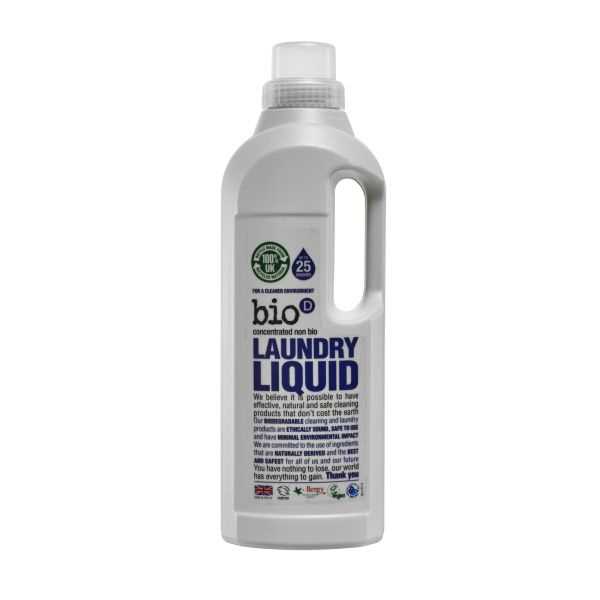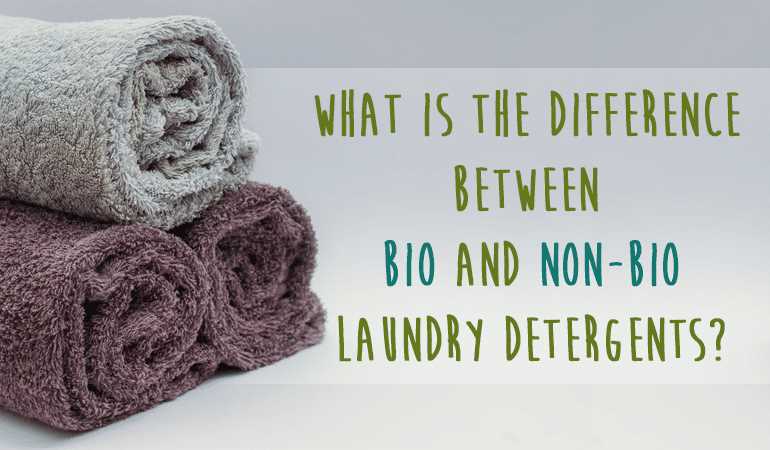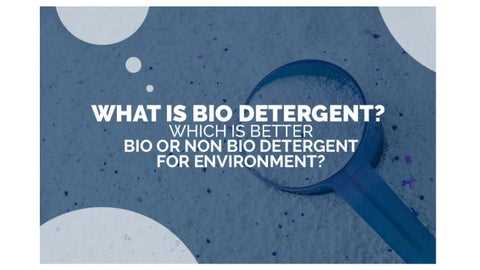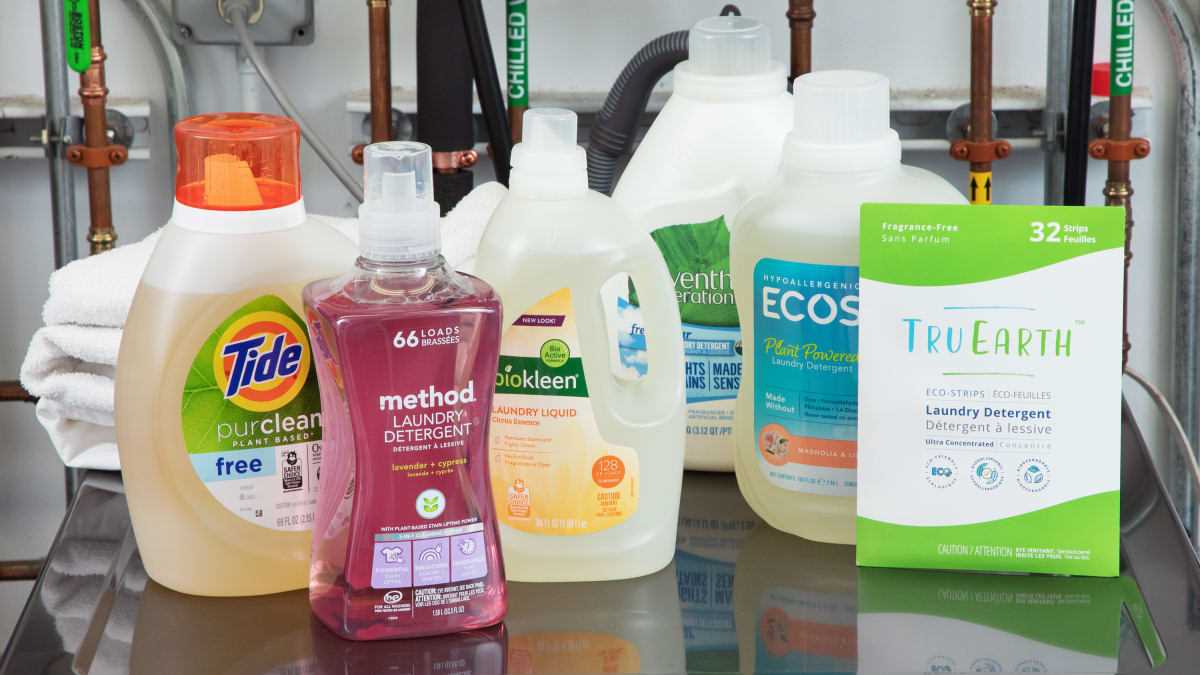




Introduction
The choice between bio and non-bio detergents is one that many consumers are faced with when purchasing cleaning products. Both types of detergents have their advantages and disadvantages, but one of the most important factors to consider is their environmental impact. In this article, we will compare the environmental impact of bio and non-bio detergents, looking at factors such as production, use, and disposal.
What Are Bio and Non-Bio Detergents?
Before we delve into the environmental impact, let’s first understand what bio and non-bio detergents are. Bio detergents, also known as biological detergents, contain enzymes that help break down stains and dirt on clothes. These enzymes are derived from natural sources such as plants or bacteria. On the other hand, non-bio detergents do not contain enzymes. They rely on other cleaning agents to remove stains and dirt.
Production
When it comes to production, bio detergents generally have a lower environmental impact compared to non-bio detergents. This is because the production of enzymes used in bio detergents requires less energy and fewer synthetic chemicals. Additionally, the enzymes used in bio detergents are biodegradable, meaning that they break down naturally over time, reducing the potential for environmental harm.
Use
The environmental impact during the use phase of bio and non-bio detergents can vary. Bio detergents are often more effective at removing stains and dirt, which means that consumers may be able to use less detergent per wash. This results in less wastewater and chemicals being released into the environment. However, it’s important to note that some people may have allergies or sensitivities to the enzymes found in bio detergents, which can pose a health risk.
Disposal
Both bio and non-bio detergents can have an impact on the environment when it comes to disposal. Non-bio detergents may contain synthetic chemicals that are harmful to waterways and aquatic life. Bio detergents, although generally biodegradable, may still contain other ingredients that can be harmful if not disposed of properly. It is important to follow proper disposal guidelines and consider the impact on the environment when choosing between bio and non-bio detergents.
Conclusion
When comparing the environmental impact of bio and non-bio detergents, it is clear that there are pros and cons to both options. Bio detergents have a lower environmental impact during production and use, but may pose a risk to individuals with allergies. Non-bio detergents, while potentially harmful during disposal, may be a better option for those with sensitivities. Ultimately, the decision should be based on an individual’s specific needs and considerations for the environment.
Understanding Bio and Non-Bio Detergents

Bio detergents, also known as biological detergents, are laundry detergents that contain enzymes derived from living organisms. These enzymes are naturally occurring and help break down stains and dirt on clothes. Bio detergents are typically labeled as such and may be indicated by a symbol of a flower or plant on the packaging.
Non-bio detergents, on the other hand, do not contain enzymes. Instead, they rely on other cleaning agents and chemicals to remove stains and dirt. Non-bio detergents may be preferred for those with sensitive skin or allergies, as they are generally considered to be less irritating than bio detergents.
Key differences between bio and non-bio detergents:
- Enzymes: Bio detergents contain enzymes, while non-bio detergents do not.
- Cleaning power: Bio detergents are generally more effective at removing tough stains and dirt due to the action of enzymes.
- Environmental impact: Non-bio detergents may have a lower environmental impact as they do not introduce enzymes into the environment.
- Skin sensitivity: Non-bio detergents are often recommended for individuals with sensitive skin or allergies.
Considerations when choosing between bio and non-bio detergents:
- Stain removal: If you frequently deal with tough stains, bio detergents may be more effective in removing them.
- Skin sensitivity: If you or someone in your household has sensitive skin or allergies, non-bio detergents may be a better option.
- Environmental impact: If minimizing your environmental footprint is a priority, non-bio detergents may be preferable due to their lower potential impact.
- Personal preference: Ultimately, the choice between bio and non-bio detergents may come down to personal preference and individual circumstances.
Whatever detergent you choose, it is important to follow the manufacturer’s instructions for proper usage and dosage to ensure effective cleaning while minimizing waste and reducing environmental impact.
Environmental Factors to Consider
When comparing the environmental impact of bio and non-bio detergents, several factors need to be taken into account:
1. Biodegradability

One of the key environmental factors to consider is the biodegradability of the detergent. Bio detergents are typically made from plant-based ingredients that break down more easily in water and soil, making them less harmful to the environment. Non-bio detergents, on the other hand, often contain synthetic chemicals that can persist in the environment for a longer time.
2. Water Pollution
The impact of detergents on water pollution is another important consideration. Bio detergents are generally designed to be more water-friendly, meaning they are less likely to contribute to water pollution. Non-bio detergents, especially those containing phosphates, can contribute to nutrient pollution and harm aquatic ecosystems.
3. Energy Consumption
The energy consumption associated with the production and use of detergents is another environmental factor to consider. Bio detergents may require less energy during the manufacturing process, as they often rely on renewable plant-based sources. In contrast, non-bio detergents often require more energy for the production of synthetic chemicals.
4. Packaging Waste
The amount of packaging waste generated by detergents is also worth considering. Both bio and non-bio detergents can come in various packaging options, such as plastic bottles or cardboard boxes. However, bio detergents may be more likely to use recyclable or biodegradable packaging materials, reducing the overall environmental impact.
5. Allergenic Potential

For individuals with sensitivities or allergies, the allergenic potential of detergents is an important environmental factor. Non-bio detergents, which often contain synthetic fragrances and harsh chemicals, may be more likely to cause skin irritation or allergic reactions compared to bio detergents, which are typically formulated with milder ingredients.
6. Carbon Footprint
Finally, the carbon footprint associated with the production and transport of detergents should be considered. Bio detergents, particularly those that are locally produced or made from sustainable sources, may have a smaller carbon footprint compared to non-bio detergents that rely on fossil fuel-based ingredients and long-distance transportation.
| Environmental Factor | Bio Detergents | Non-Bio Detergents |
|---|---|---|
| Biodegradability | High | Low |
| Water Pollution | Low | High (especially if containing phosphates) |
| Energy Consumption | Low | High |
| Packaging Waste | Often recyclable or biodegradable | Varies |
| Allergenic Potential | Lower | Higher |
| Carbon Footprint | Smaller (especially if locally produced or from sustainable sources) | Higher |
Comparing the Lifecycle Impact

When comparing the environmental impact of bio and non-bio detergents, it is important to consider their lifecycle impact. This includes the resources used, emissions produced, and waste generated throughout the entire lifecycle of the products. Here is a comparison of the lifecycle impact of bio and non-bio detergents:
Resources Used
Both bio and non-bio detergents require resources for their production. However, the resources used in bio detergents are generally more sustainable and renewable compared to non-bio detergents. Bio detergents often use plant-based ingredients, such as vegetable oils and enzymes, which can be sourced from renewable crops. On the other hand, non-bio detergents often rely on synthetic chemicals derived from petroleum, which is a non-renewable resource.
Emissions Produced
During the production and use of detergents, emissions can be released into the environment. Bio detergents tend to have lower emissions compared to non-bio detergents. This is because the production of bio detergents often involves fewer chemical processes and uses more natural ingredients. Non-bio detergents, on the other hand, may release more harmful chemicals and greenhouse gases during their production and use.
Waste Generated

Both bio and non-bio detergents can contribute to waste generation. However, bio detergents are often more biodegradable and less harmful to the environment. Bio detergents are designed to break down more easily, reducing the accumulation of detergent residues in ecosystems. Non-bio detergents may contain substances that are more persistent in the environment, leading to long-term pollution.
In conclusion, when considering the lifecycle impact of bio and non-bio detergents, bio detergents generally have a lower impact on the environment. They tend to use more sustainable resources, produce fewer emissions, and generate less harmful waste. However, it is important to note that the specific environmental impact may vary depending on the brand and formulation of the detergent.
FAQ
What are bio and non-bio detergents?
Bio detergents are laundry detergents that contain enzymes and are designed to be more effective in removing stains and dirt. Non-bio detergents, on the other hand, do not contain enzymes and are generally considered to be milder and less likely to cause skin irritation.
Which type of detergent has a greater environmental impact?
The environmental impact of both bio and non-bio detergents can vary depending on the specific formulation and manufacturing processes. However, bio detergents often have a higher environmental impact due to the production and use of enzymes, which can have negative effects on aquatic life if released into water systems.
Are bio detergents more effective in cleaning clothes compared to non-bio detergents?
Yes, bio detergents are generally more effective in cleaning clothes compared to non-bio detergents. The enzymes present in bio detergents help break down and remove stains more efficiently. However, it’s important to note that the effectiveness can also depend on the specific brand and formulation of the detergent.
Are there any eco-friendly alternatives to bio and non-bio detergents?
Yes, there are eco-friendly alternatives to both bio and non-bio detergents. Some options include using soap nuts, which are natural and biodegradable, or making your own detergent using ingredients like baking soda, vinegar, and essential oils.
How can I reduce the environmental impact of using detergents?
There are several ways you can reduce the environmental impact of using detergents. One option is to choose eco-friendly detergents that are made from natural and biodegradable ingredients. Another option is to wash clothes in lower temperatures, as this reduces energy consumption. Additionally, using the correct amount of detergent and avoiding overloading the washing machine can help minimize waste and water usage.











